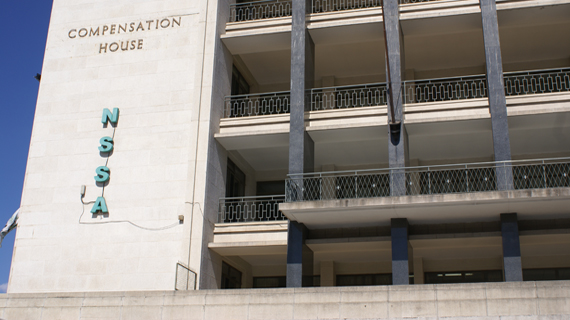
NATIONAL Pension Scheme (NPS) pensions are payable for life.
That applies to all NPS pensions whether they are retirement pensions, survivors’ pensions or invalidity pensions, unless an invalidity pensioner’s condition has changed and he is able to work.
A correspondent recently enquired for how many years a retirement pension is paid.
The same person asked what reason there could be for stopping pension payments to a pensioner who is still alive.
A retirement pension is paid for as long as the pensioner is still alive.
However, all pension schemes normally require pensioners to periodically complete a certificate confirming that they are still entitled to the pension.
The certificate normally has to be signed not only by the pensioner, but by another person who is not a relative.
A deadline is normally given by which the completed certificate must be returned, if payment of the pension is to continue.
- Chamisa under fire over US$120K donation
- Mavhunga puts DeMbare into Chibuku quarterfinals
- Pension funds bet on Cabora Bassa oilfields
- Councils defy govt fire tender directive
Keep Reading
The reason for this requirement is obvious.
It is to confirm that the person is still alive.
Without such a provision pensions could continue to be paid long after a pensioner had died.
The National Social Security Authority (NSSA) sends out a life certificate every year to those in receipt of pensions from it.
The certificate needs to be completed and returned to ensure the pension continues.
The authority is planning to conduct an exercise later in the year requesting all NSSA pensioners to visit their nearest NSSA office to complete a life certificate.
This is because not all life certificates that are posted reach the pensioners concerned, since many of them may have changed their address without notifying NSSA of the change.
A pensioner has ceased to receive his or her pension should visit the nearest NSSA office with proof of identity to enquire what may have happened and confirm he or she is still alive and entitled to the pension.
A widow who is receiving a survivor’s pension remains entitled to the pension for the rest of her life, even if she remarries.
However, she can only receive one survivor’s pension. Should her second husband die, she will not be paid a second survivor’s pension.
The same applies to a widower.
This is different from the position of a person who is receiving a Workers’ Compensation Insurance Fund (WCIF) widow’s or widower’s pension due to a spouse having died as the result of a work-related accident.
With the WCIF scheme, if the surviving spouse remarries then a lump sum equivalent to 24 months pension is paid and the pension is terminated.
The children’s allowances for children up to the age of 19, however, continue.
An invalidity pension is payable to a NPS contributor below the age of 60 who has contributed to the scheme for at least 12 months and who is medically certified as permanently incapable of any work as a result of physical or mental ill-health.
This would mean that the person will never be able to work and would thus be entitled to an invalidity pension for the rest of his or her life.
However, this entitlement for life is not as absolute as that of a retirement or survivor pensioner, since medical conditions can sometimes change, whether as a result of a misdiagnosis, advances in medical science or a miracle.
The invalidity pension is paid on the basis that the person concerned is permanently incapacitated and permanently incapable of doing any work.
As long as that is the case, then the invalidity pensioner remains entitled to the pension.
Should the situation change and the pensioner become capable of working, then the pensionerceases to be entitled to invalidity pension and should advise NSSA so that the pension can be stopped.
While the invalidity pension can be claimed at any age below the age of 60, the amount paid is less than the retirement pension.
The minimum retirement pension is $60 per month, while the minimum invalidity pension is $30. The minimum survivor’s pension is also $30.
With respect to the retirement pension, somebody wrote in recently saying he was 70 and asking whether he could still claim his pension and, if so, whether it would be backdated to age 60.
First of all to be eligible for a retirement pension one must have contributed to the NPS for at least 120 months, which is 10 years.
The stipulated period within which one should claim one’s pension is 12 months of becoming eligible for it.
Late applications can be entertained but the pension, if approved, will only be payable from the date that the application is received by NSSA.
Contributors to the pension scheme who have contributed for less than 10 years, but more than 12 months cannot receive a pension, but are entitled to a lumpsum benefit provided they apply for it within five years of becoming eligible for it.
One is normally eligible for a retirement benefit, if retired, at age 60 or, whether retired or not, at age 65.
There is an early retirement age of 55 for those who have spent seven of the previous 10 years in a restricted number of jobs categorised by NSSA as arduous employment.
The longer one contributes for the better one’s retirement benefit is likely to be.
- Talking Social Security is published weekly by the National Social Security Authority as a public service.
There is also a weekly radio programme, PaMhepo neNSSA/Emoyeni leNSSA, discussing social security issues at 6:50pm every Thursday on Radio Zimbabwe and every Friday on National FM.
There is another social security programme on Star FM on Wednesdays at 5:30pm.
Readers can email issues they would like dealt with in this column to [email protected] or text them to 0772307913. Those with individual queries should contact their local NSSA office or telephone NSSA on (04) 706517-8 or 706523 5.










